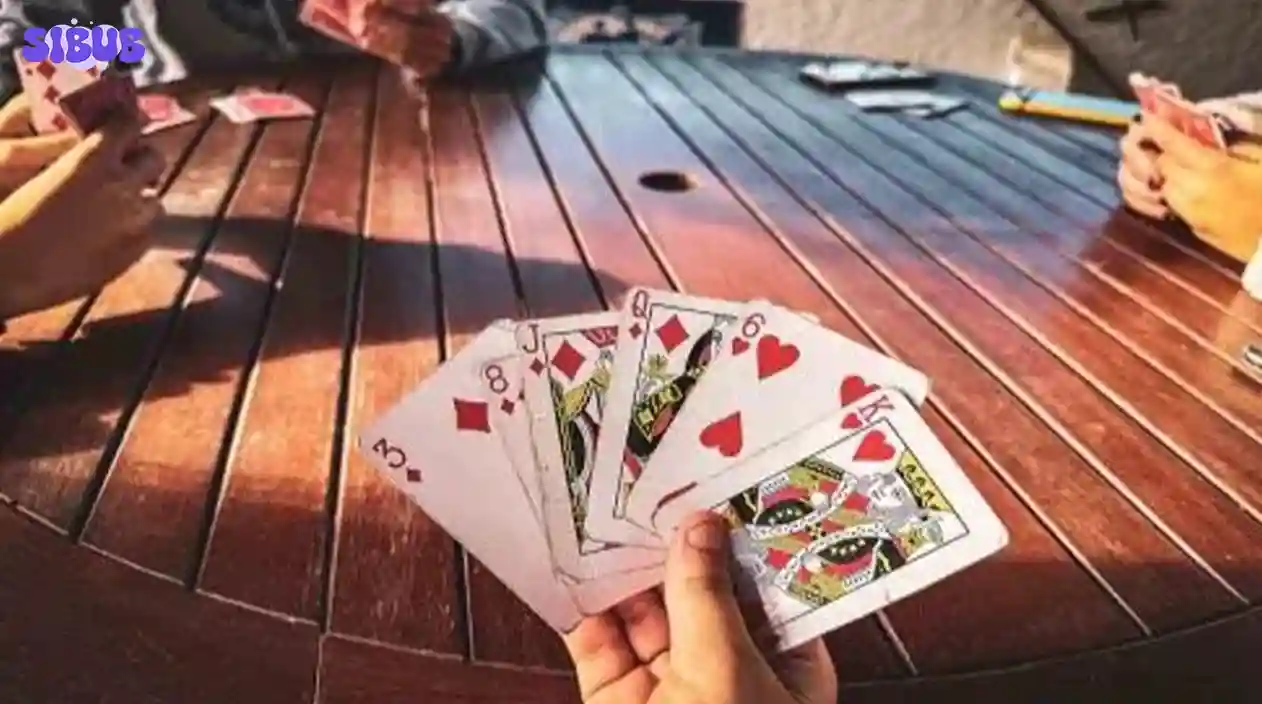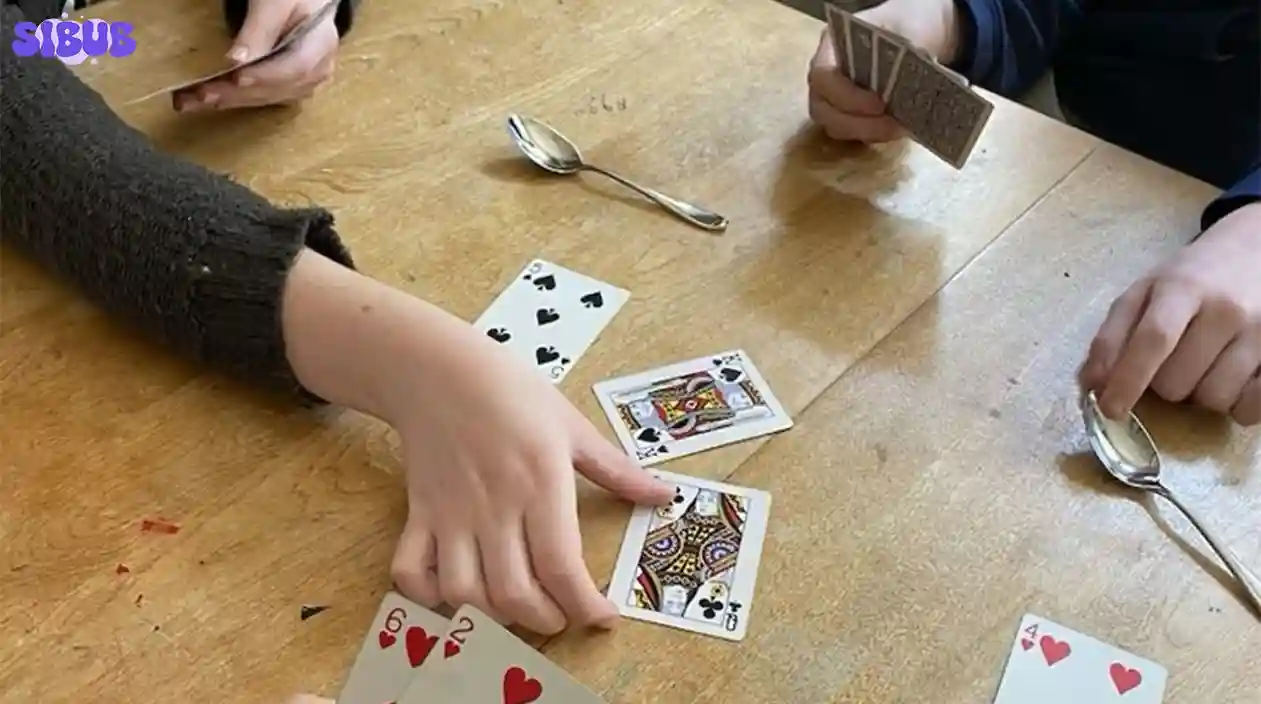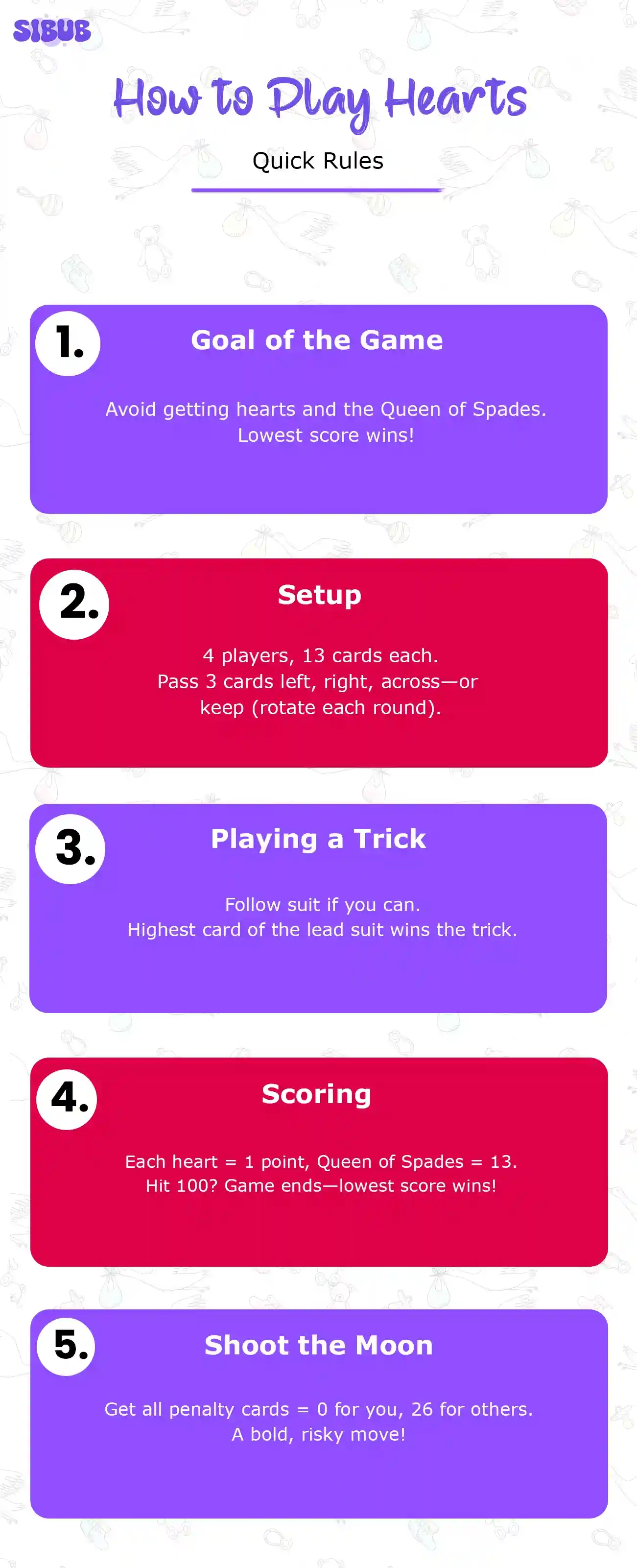If virtually all games can be played in groups, learning how to play Hearts may be your number one priority if you’re looking for a card game that integrates strategy, prediction, and a little bit of ‘sneakery.’
The game has been part of the social calendar of both casual and serious card players for years. At first glance, it might appear as if the game has a straightforward premise; avoid taking certain cards that can potentially score too high, but it is much deeper than that and involves quite a bit of strategy and cunning.
In this guide, we will get deeper into the rules and strategies required to master it, providing you with easily digestible information. It is designed for those who may not be used to the games that involve cards, ‘Hearts’ format to be specific.
A Quick Look at the Game
Hearts is a trick-avoidance game. This means the goal isn’t to win the most tricks, it’s to avoid winning certain cards that come with penalty points.
- Players: 4 (best with four, but can be played with 3–6 with adjustments)
- Deck: Standard 52-card deck
- Goal: End the game with the lowest score
You score points by collecting hearts and the Queen of Spades. But in this game, points are bad. The fewer you collect, the better your chances of winning.

Discover: How to Play Poker: Simple Rules for Beginners
Where Did Hearts Come From?
Hearts has been around for a long time. It showed up in the U.S. around 1880 and was based on a much older European game called Reverse. But it really became popular in the 1990s when a version came bundled with Microsoft Windows. That version taught millions how to play card games Hearts style, and it’s still played by many online today.
Basic Setup
Before learning the rules to Hearts card game, you need to know how to set it up:
- Shuffle a 52-card deck.
- Deal 13 cards to each player (for a four-player game).
- Begin a pass round (more on that below).
Passing Cards: A Unique Twist
This part of the game adds a lot of strategy. Before each hand begins:
- Players choose 3 cards to pass to another player.
- First hand: Pass to the left
- Second hand: Pass to the right
- Third hand: Pass across
- Fourth hand: No passing
This cycle repeats throughout the game. So, think carefully about which cards you give away—it could help or hurt your chances.
Explore: When Does an Infant Get Teeth? 7 Things Parents Should Know
Hearts Game Rules: Trick by Trick
Let’s break down the rules of the card game Hearts step-by-step:
1. Who Starts?
Whoever has the 2 of Clubs plays it first. That card must be led in the first trick.
2. How Do You Play a Trick?
- Players take turns playing one card each.
- You must follow the same suit if you can.
- If you don’t have that suit, play any card, except:
- You can’t play a heart or Queen of Spades in the first trick.
- Hearts can’t be led until they’ve been “broken” (played after someone couldn’t follow suit).
3. Who Wins a Trick?
The highest card of the suit that was led wins. That player gathers the four cards and places them face down in a pile. If there are any penalty cards, they set them aside face up.
Scoring: What to Avoid
The heart card is where the penalty comes in. Here’s how scoring works:
- Each heart = 1 point
- Queen of Spades = 13 points
- That’s 26 penalty points in total per hand.
Special Move: Shooting the Moon
This is a bold strategy!
If a player wins all the penalty cards in a single hand (all 13 hearts and the Queen of Spades), they “shoot the moon.”
Then they get a big advantage:
- Either subtract 26 points from their own score
OR - Make every other player add 26 points
This can totally flip the game!
Winning the Game
The game ends when any player reaches 100 points or more. At that moment, the player with the lowest score wins.
So remember: the fewer hearts and Queens you collect, the better.
Discover about Holiday Fun related blogs.
More on the Rules of Hearts Card Game
Let’s recap some essential Hearts card game rules:
- Always follow the suit if possible.
- You can’t play a heart or Queen of Spades in the first trick.
- Hearts can’t be led until broken (unless it’s your only option).
- Watch out for the Queen of Spades, she’s a game-changer.
- Use passing rounds to your advantage (but don’t pass penalty cards early!).
- The lowest score wins when the game ends.

Variants: Add a Twist to the Game
Want to make it even more fun? Try these variants:
Omnibus Hearts
- Add a bonus: The Jack of Diamonds is worth- -10 points.
- This can help offset a bad hand or give you a reason to chase a specific card.
3-6 Player Games
- Adjust by removing some cards (like 2♣ or 2♠) so hands are even.
- You might also skip the “across” pass with an odd number of players.
Strategy Tips for Beginners on How to Play Hearts
If you’re just learning how to play Hearts, here are some simple tips to get better:
1. Don’t Pass the Queen Early
It’s tempting to get rid of her, but your opponent might dump hearts on you later.
2. Shorten a Suit
If you only have one card in a suit, you can get out of following suit early—this lets you play high-penalty cards when others can’t stop you.
3. Pay Attention
Watch what cards are played. This helps you figure out who’s holding what, and who might be trying to shoot the moon.
4. Lose the Lead When Needed
If you’re holding the Queen or lots of hearts, don’t win the trick unless you have to.
Why People Love Card Games Hearts Style
Hearts is more than just another card game. It’s:
- Fast-paced and social
- Easy to learn, but deep enough for strategy
- Fun, whether you’re a beginner or a veteran
- Ideal for passing time with friends or family
- A mix of luck and skill, perfect for all ages
Plus, the thrill of “shooting the moon” always adds excitement.

Check this out: 120 Self Love Affirmations to Boost Self-Esteem
Therefore…
Now that you know how to play Hearts, you’re ready to sit down with a deck or open up an online version and start playing. Whether you’re learning from scratch or brushing up on the hearts rule, this game is a classic for a reason.
To recap, you’ve learned:
- The rules of the card game Hearts
- How the passing and scoring work
- Tips to win and what to avoid
- The thrill of shooting the moon
- And why this game continues to entertain millions
So grab three friends (or play online), shuffle the cards, and get started.
